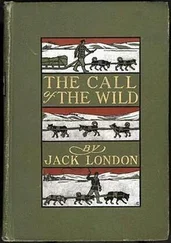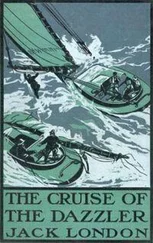Jack London - The Strength of the Strong
Здесь есть возможность читать онлайн «Jack London - The Strength of the Strong» весь текст электронной книги совершенно бесплатно (целиком полную версию без сокращений). В некоторых случаях можно слушать аудио, скачать через торрент в формате fb2 и присутствует краткое содержание. Жанр: Социально-психологическая фантастика, Классическая проза, на английском языке. Описание произведения, (предисловие) а так же отзывы посетителей доступны на портале библиотеки ЛибКат.
- Название:The Strength of the Strong
- Автор:
- Жанр:
- Год:неизвестен
- ISBN:нет данных
- Рейтинг книги:4 / 5. Голосов: 1
-
Избранное:Добавить в избранное
- Отзывы:
-
Ваша оценка:
- 80
- 1
- 2
- 3
- 4
- 5
The Strength of the Strong: краткое содержание, описание и аннотация
Предлагаем к чтению аннотацию, описание, краткое содержание или предисловие (зависит от того, что написал сам автор книги «The Strength of the Strong»). Если вы не нашли необходимую информацию о книге — напишите в комментариях, мы постараемся отыскать её.
The Strength of the Strong — читать онлайн бесплатно полную книгу (весь текст) целиком
Ниже представлен текст книги, разбитый по страницам. Система сохранения места последней прочитанной страницы, позволяет с удобством читать онлайн бесплатно книгу «The Strength of the Strong», без необходимости каждый раз заново искать на чём Вы остановились. Поставьте закладку, и сможете в любой момент перейти на страницу, на которой закончили чтение.
Интервал:
Закладка:
Catherine Van Vorst was sick and faint at sight of the blood and brutal fighting. But her qualms were vanquished by the sensational and most unexpected happening that followed. The man beside her emitted an unearthly and uncultured yell and rose to his feet. She saw him spring over the front seat, leap to the broad rump of the wheeler, and from there gain the waggon. His onslaught was like a whirlwind. Before the bewildered officer on the load could guess the errand of this conventionally clad but excited-seeming gentleman, he was the recipient of a punch that arched him back through the air to the pavement. A kick in the face led an ascending policeman to follow his example. A rush of three more gained the top and locked with Bill Totts in a gigantic clinch, during which his scalp was opened up by a club, and coat, vest, and half his starched shirt were torn from him. But the three policemen were flung far and wide, and Bill Totts, raining down lumps of coal, held the fort.
The captain led gallantly to the attack, but was bowled over by a chunk of coal that burst on his head in black baptism. The need of the police was to break the blockade in front before the mob could break in at the rear, and Bill Totts’ need was to hold the waggon till the mob did break through. So the battle of the coal went on.
The crowd had recognized its champion. “Big” Bill, as usual, had come to the front, and Catherine Van Vorst was bewildered by the cries of “Bill! O you Bill!” that arose on every hand. Pat Morrissey, on his waggon seat, was jumping and screaming in an ecstasy, “Eat ’em, Bill! Eat ’em! Eat ’em alive!” From the sidewalk she heard a woman’s voice cry out, “Look out, Bill-front end!” Bill took the warning and with well-directed coal cleared the front end of the waggon of assailants. Catherine Van Vorst turned her head and saw on the curb of the sidewalk a woman with vivid colouring and flashing black eyes who was staring with all her soul at the man who had been Freddie Drummond a few minutes before.
The windows of the office building became vociferous with applause. A fresh shower of office chairs and filing cabinets descended. The mob had broken through on one side the line of waggons, and was advancing, each segregated policeman the centre of a fighting group. The scabs were torn from their seats, the traces of the horses cut, and the frightened animals put in flight. Many policemen crawled under the coal waggon for safety, while the loose horses, with here and there a policeman on their backs or struggling at their heads to hold them, surged across the sidewalk opposite the jam and broke into Market Street.
Catherine Van Vorst heard the woman’s voice calling in warning. She was back on the curb again, and crying out-
“Beat it, Bill! Now’s your time! Beat it!”
The police for the moment had been swept away. Bill Totts leaped to the pavement and made his way to the woman on the sidewalk. Catherine Van Vorst saw her throw her arms around him and kiss him on the lips; and Catherine Van Vorst watched him curiously as he went on down the sidewalk, one arm around the woman, both talking and laughing, and he with a volubility and abandon she could never have dreamed possible.
The police were back again and clearing the jam while waiting for reinforcements and new drivers and horses. The mob had done its work and was scattering, and Catherine Van Vorst, still watching, could see the man she had known as Freddie Drummond. He towered a head above the crowd. His arm was still about the woman. And she in the motor-car, watching, saw the pair cross Market Street, cross the Slot, and disappear down Third Street into the labour ghetto.
In the years that followed no more lectures were given in the University of California by one Freddie Drummond, and no more books on economics and the labour question appeared over the name of Frederick A. Drummond. On the other hand there arose a new labour leader, William Totts by name. He it was who married Mary Condon, President of the International Glove Workers’ Union No. 974; and he it was who called the notorious Cooks and Waiters’ Strike, which, before its successful termination, brought out with it scores of other unions, among which, of the more remotely allied, were the Chicken Pickers and the Undertakers.
THE UNPARALLELED INVASION
It was in the year 1976 that the trouble between the world and China reached its culmination. It was because of this that the celebration of the Second Centennial of American Liberty was deferred. Many other plans of the nations of the earth were twisted and tangled and postponed for the same reason. The world awoke rather abruptly to its danger; but for over seventy years, unperceived, affairs had been shaping toward this very end.
The year 1904 logically marks the beginning of the development that, seventy years later, was to bring consternation to the whole world. The Japanese-Russian War took place in 1904, and the historians of the time gravely noted it down that that event marked the entrance of Japan into the comity of nations. What it really did mark was the awakening of China. This awakening, long expected, had finally been given up. The Western nations had tried to arouse China, and they had failed. Out of their native optimism and race-egotism they had therefore concluded that the task was impossible, that China would never awaken.
What they had failed to take into account was this: that between them and China was no common psychological speech . Their thought-processes were radically dissimilar. There was no intimate vocabulary. The Western mind penetrated the Chinese mind but a short distance when it found itself in a fathomless maze. The Chinese mind penetrated the Western mind an equally short distance when it fetched up against a blank, incomprehensible wall. It was all a matter of language. There was no way to communicate Western ideas to the Chinese mind. China remained asleep. The material achievement and progress of the West was a closed book to her; nor could the West open the book. Back and deep down on the tie-ribs of consciousness, in the mind, say, of the English-speaking race, was a capacity to thrill to short, Saxon words; back and deep down on the tie-ribs of consciousness of the Chinese mind was a capacity to thrill to its own hieroglyphics; but the Chinese mind could not thrill to short, Saxon words; nor could the English-speaking mind thrill to hieroglyphics. The fabrics of their minds were woven from totally different stuffs. They were mental aliens. And so it was that Western material achievement and progress made no dent on the rounded sleep of China.
Came Japan and her victory over Russia in 1904. Now the Japanese race was the freak and paradox among Eastern peoples. In some strange way Japan was receptive to all the West had to offer. Japan swiftly assimilated the Western ideas, and digested them, and so capably applied them that she suddenly burst forth, full-panoplied, a world-power. There is no explaining this peculiar openness of Japan to the alien culture of the West. As well might be explained any biological sport in the animal kingdom.
Having decisively thrashed the great Russian Empire, Japan promptly set about dreaming a colossal dream of empire for herself. Korea she had made into a granary and a colony; treaty privileges and vulpine diplomacy gave her the monopoly of Manchuria. But Japan was not satisfied. She turned her eyes upon China. There lay a vast territory, and in that territory were the hugest deposits in the world of iron and coal-the backbone of industrial civilization. Given natural resources, the other great factor in industry is labour. In that territory was a population of 400,000,000 souls-one quarter of the then total population of the earth. Furthermore, the Chinese were excellent workers, while their fatalistic philosophy (or religion) and their stolid nervous organization constituted them splendid soldiers-if they were properly managed. Needless to say, Japan was prepared to furnish that management.
Читать дальшеИнтервал:
Закладка:
Похожие книги на «The Strength of the Strong»
Представляем Вашему вниманию похожие книги на «The Strength of the Strong» списком для выбора. Мы отобрали схожую по названию и смыслу литературу в надежде предоставить читателям больше вариантов отыскать новые, интересные, ещё непрочитанные произведения.
Обсуждение, отзывы о книге «The Strength of the Strong» и просто собственные мнения читателей. Оставьте ваши комментарии, напишите, что Вы думаете о произведении, его смысле или главных героях. Укажите что конкретно понравилось, а что нет, и почему Вы так считаете.







